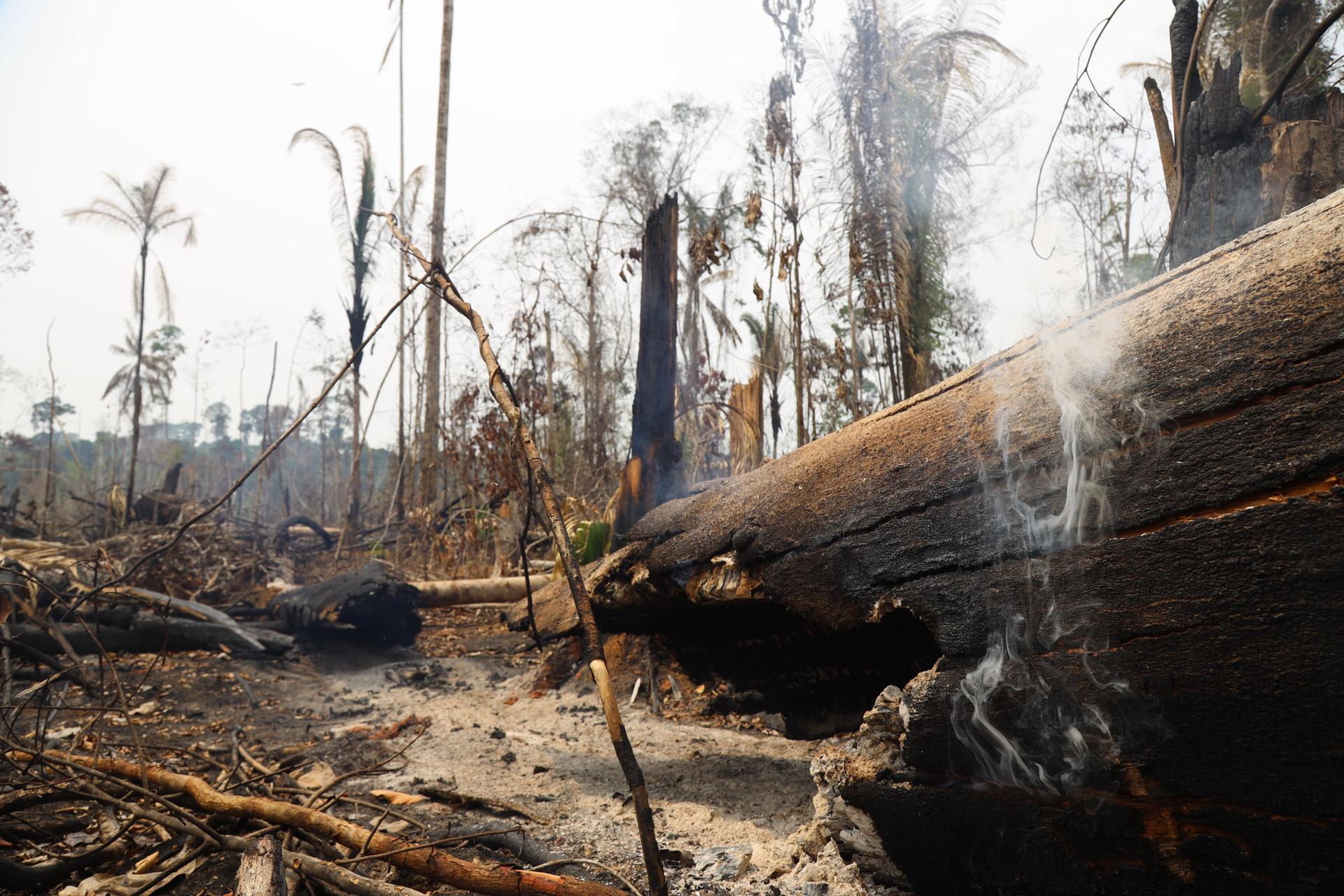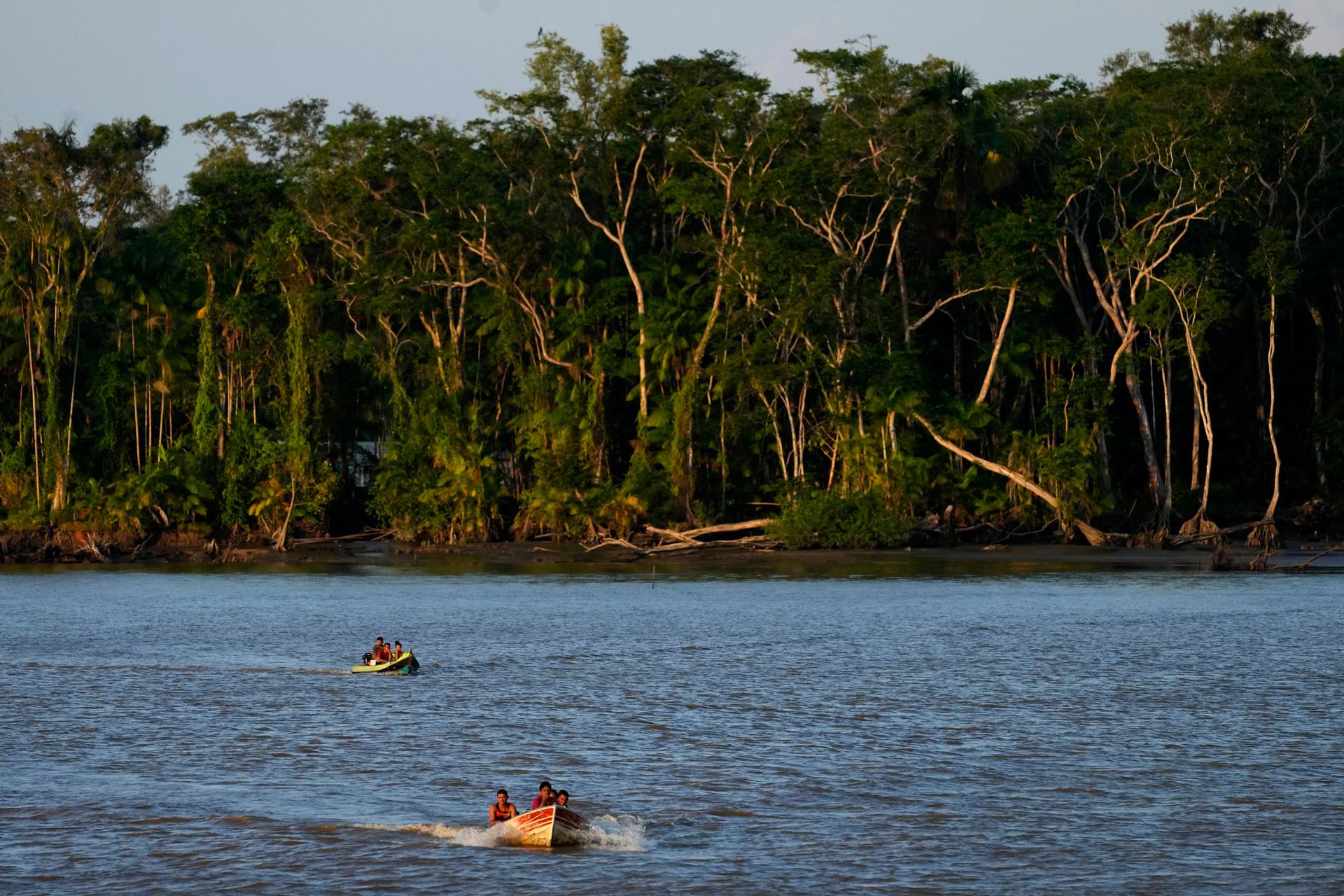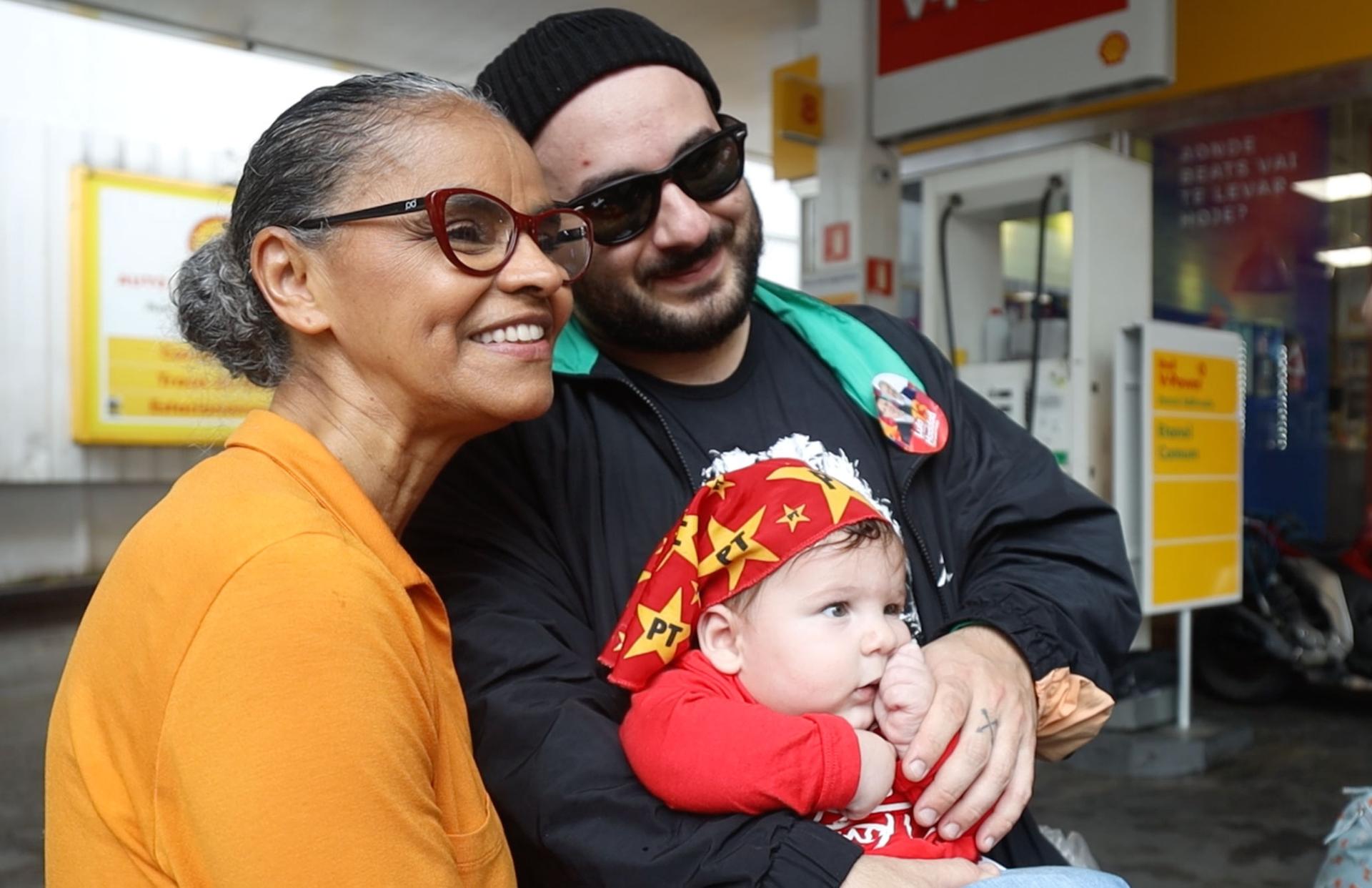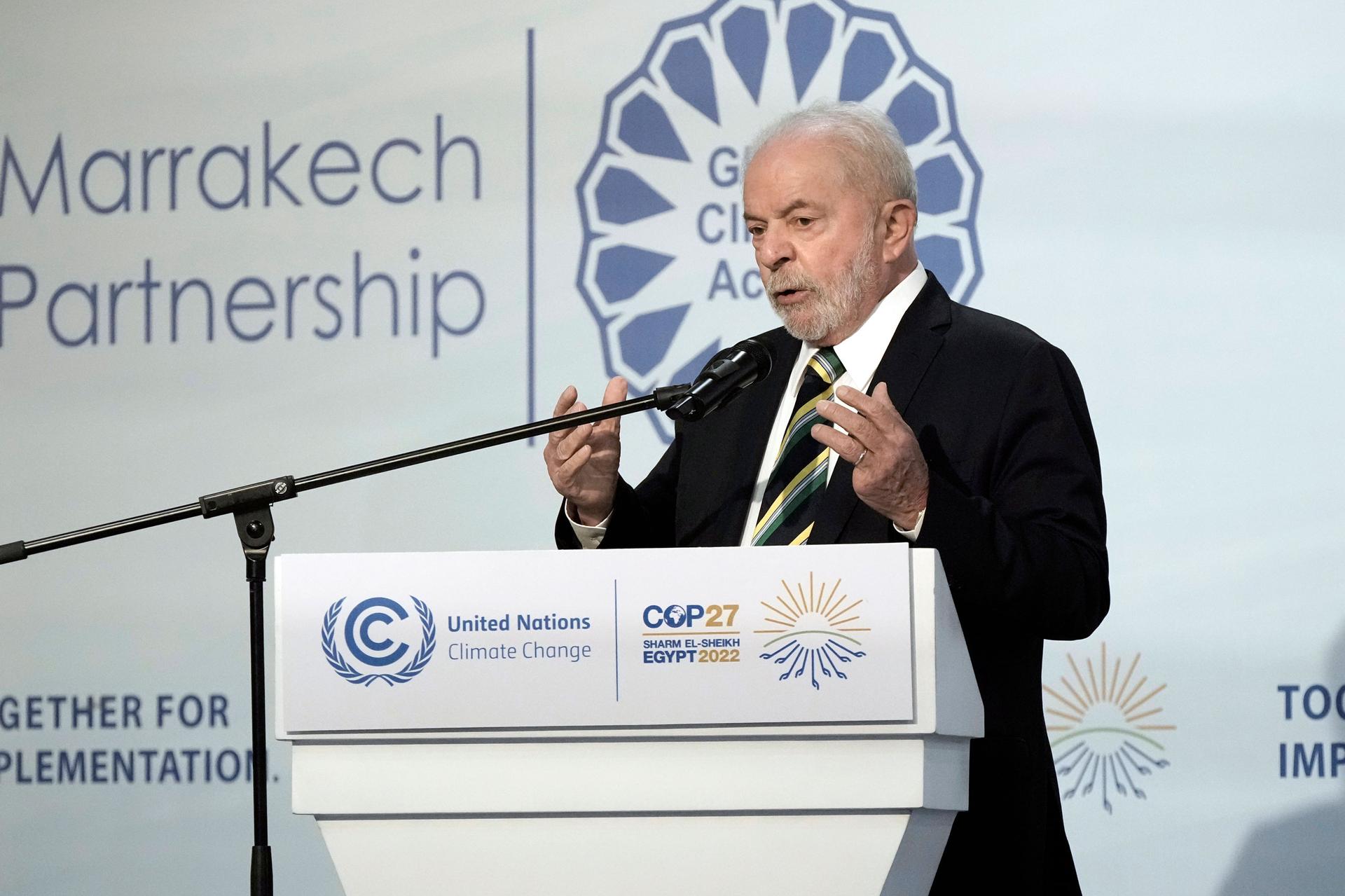At COP27, Lula promises to resume Brazil’s ‘leading role’ as a climate defender
Before catching his flight on Monday to Egypt for the COP27 climate conference, Brazil’s President-elect Luiz Inácio Lula da Silva sent out a tweet: “We are returning to the world,” he wrote.
The tweet was accompanied by a video in which world leaders were seen congratulating Lula on his electoral victory, and in which Lula said he’s going to protect the environment.
“You all know that we are going to undertake a big fight against deforestation,” Lula told world leaders in a speech on Wednesday.
“Brazil can’t remain isolated like it was these last four years. [Officials from Brazil] didn’t travel to any other countries, and no other countries traveled to Brazil.”

Under current President Jair Bolsonaro, Brazil went from being a leader in the international battle against climate change, to a pariah. Lula said on election night that “it’s time to turn the page.”
“Brazil is ready to resume its leading role in the fight against the climate crisis, protecting all of our biomes, especially the Amazon rainforest. Brazil and the planet need a living Amazon,” he said.
“A tree standing is worth more than a ton of illegally harvested timber by those who think only of easy profit.”
That was music to the ears of the members of Brazil’s environmental communities, including Juliana Kerexu — a Guarani leader who is representing Brazil’s Indigenous peoples at COP27.
“The Bolsonaro government had no dialogue with the Indigenous peoples of the country,” Kerexu said, during a press conference at the summit this week.
“In this moment of transition, we are hopeful for more democratic days.”

At COP27 on Nov. 15, Lula met with US Climate Envoy John Kerry, who said he was glad Lula was pushing for “once-and-for-all getting it right, pulling people together in order to preserve the Amazon.”
Indigenous communities and environmental advocates say Bolsonaro’s government has been a disaster. State agencies were gutted and defunded.
The country’s emissions of greenhouse gasses are at a nearly two-decade high, largely due to out-of-control fires and deforestation. The week following Lula’s electoral win, there were more than 1,300 blazes in just the Amazonian state of Rondônia, a 10-fold increase over last year.
Federal University of Amazonas ecology professor Henrique Pereira said Bolsonaro set the country back 50 years in terms of environmental protection, and it could take Lula some time to turn the tide.
But he will have help. Back when he was president of Brazil in the mid-2000s, Lula’s chief environmental ally was his then-environment minister Marina Silva — a former union leader of Amazonian rubber tappers. She later broke with Lula’s government over political differences. Now, she’s back.
“That really has brought me a lot of hope,” said Suely Araujo, the former head of Brazil’s environment agency and senior specialist at the Climate Observatory, a Brazilian nongovernmental organization.
“That really touched me when I saw Marina joining Lula’s campaign.”

Following a Lula rally last month, Marina Silva said she had already given Lula a series of documents with clear proposals about how to get to zero deforestation.
“We are going to recuperate our environmental agencies that were destroyed and we are going to create a national agency against climate change,” she said.
Lula is not starting anew. When he came to power 20 years ago, deforestation rates in the Amazon were even worse than today. Lula enacted a series of landmark measures. They cut deforestation rates in half within two years. And Brazil hit its 2020 goal of reducing greenhouse gas emissions from deforestation ahead of schedule.
“It was proven that Brazil can produce food and also conserve forests and its people. So, we know how to do it,” said Ane Alencar, science director at the Amazon Environmental Research Institute. “However, I think it’s going to be difficult to do it again.”
That’s because there are new complicated challenges. Above all, the complete lawlessness in the Amazon under Bolsonaro has empowered illegal loggers, miners and land grabbers.
In many areas, they’ve joined forces with powerful narco-trafficking groups, who are likely to push back on government measures to protect the forest.
But Lula says he’s ready.
Former environment agency director Suely Araujo said Lula’s participation in COP27 is a sign that Brazil is once again going to become a world leader in the fight against climate change.
“Lula is going to lift Brazil into a key role in the climate negotiations,” she said, and become “a leader in decreasing climate emissions and greenhouse gasses.”
Lula is not even president yet, and at COP27, he has received invitations to 10 bilateral meetings. Unlike his predecessor, who outright rejected international support in Amazon protection, Lula has welcomed the world’s help in protecting Brazil’s forests.
At COP27, he called for the 2025 climate conference to be held in the Amazon, saying it was time for “people who defend the Amazon and defend the climate to get to know the region, close-up.”
We want to hear your feedback so we can keep improving our website, theworld.org. Please fill out this quick survey and let us know your thoughts (your answers will be anonymous). Thanks for your time!
